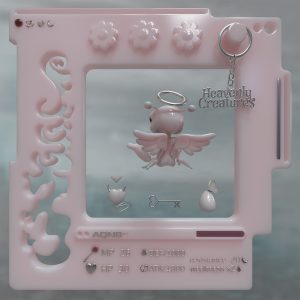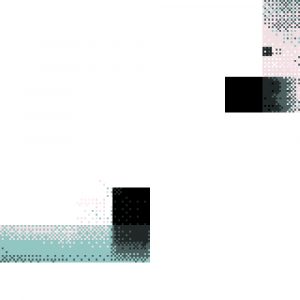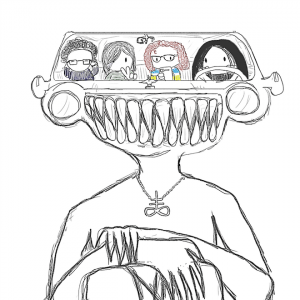“I think the high turnover thing is like 50-50 between Moore’s Law and the Creative Arms Race,” writes 24-year-old blackwinterwells—Wells for short—in reply to one of many of my loaded questions around the perspective of a late-90s baby born into a world already ruled by the internet. “I’m sure neuroplasticity is a great advantage but being stuck inside is the great equalizer,” she explains, responding to my febrile speculations on a contemporary youth culture and its online peculiarities with an example of a shared intergenerational experience in pandemic. “You could be in middle school with no industry connections, or 100 years old with every ‘networkial’ [sic] force at your disposal, and you still can’t get any closer to a potential listener than the other guy.”
As one of 11 artists and collaborations contributing tracks to AQNB’s Heavenly Creatures art and music compendium—released on March 23, and available today to stream in full—the producer, rapper and music engineer is an example of this kind of universal appeal transcending any specific context. There’s a particular longing and melancholy that envelops the enchanting synth melodies and pads buoying Wells’ own words that wonder, “where did my senses go?” This contemporary pathos of forced isolation is a sense that’s equalled in the track listing by frequent Wells collaborator and fellow Ontario-based artist 8485’s ‘3cheers’. Producer Taylor Morgan’s wistful atmospheric build up and urgent broken beat carries the heavy burden of the 22-year-old singer-songwriter and self-described “sometimes-vocaloid”’s simple line of collective grief: “I don’t want to go to sleep without you right now.”

“Time has been fucked this year, in general,” writes 8485, in response to the suggestion that the past year of lockdown and social distancing has shifted our perception of time into something that’s far more elastic, less linear and increasingly relative. “I think time and making stuff have a really weird relationship. I actually wrote the hook for the song ‘circles’ inspired by this weird episode I had where I was walking around my room for a couple of hours thinking really obsessively about time, like trying to solve time,” she says about the gorgeous Helix Tears release that’s racked up a whopping 22.3K plays since dropping two months ago. “This all didn’t really make it into the song, but I’d been reading CCRU [Cybernetic Culture Research Unit], which talks a lot about nonlinear time and time loops.”
**You both started out pretty young, and you work with a lot of very young, adolescent producers. Do you think this hyperactive, high turnover approach is representative of a contemporary teen existence?
8485: It’s kind of a weird collision of the demands of the Internet and streaming right now, where you always have to be putting out more and more new and different content, and the way that a lot of the younger artists seem to work naturally. I can’t speak on how much of it has to do with being a teenager, but it’s really inspiring to see a lot of these artists embrace so many different influences in such a short time. I think osquinn’s career is a really good example of that—just going with her own instincts in any direction, and having it be so successful. It definitely fits with the idea of ‘adolescent phases’, but I think it has more to do with being a creative person tuned into a lot of different shit at once.
**I’m interested in placing your music and this scene in the context of trance, gabber, happy hardcore and chiptune; nightcore and PC Music. Do you have any thoughts on where you’re coming from creatively, and how you think that fits into this timeline more broadly?
8485: I think most of my releases so far have each marked a different point on the map because I don’t like doing the same thing more than once very much. Speaking definitely for myself—and probably for Wells—I don’t think we fit super comfortably in that kind of typical ‘hyperpop’ ancestry. A lot of those influences are high on my list, but so are witch house, alt rock, indie and a lot of simpler synth-pop music. I’m less interested in finding and keeping one niche than I am in being eclectic and making the kinds of music I like listening to, which happen to stretch pretty far.
Wells: The first vocal album I made, was me trying to make the electronic equivalent of Youth by Citizen. I like pained ballads, I like trance music, I like cloud rap, I like 80s new wave songs. That space is always where I’ve been coming from. It has never been hyper and it has never been pop, for me. I’m just making sad synth music with my friends.
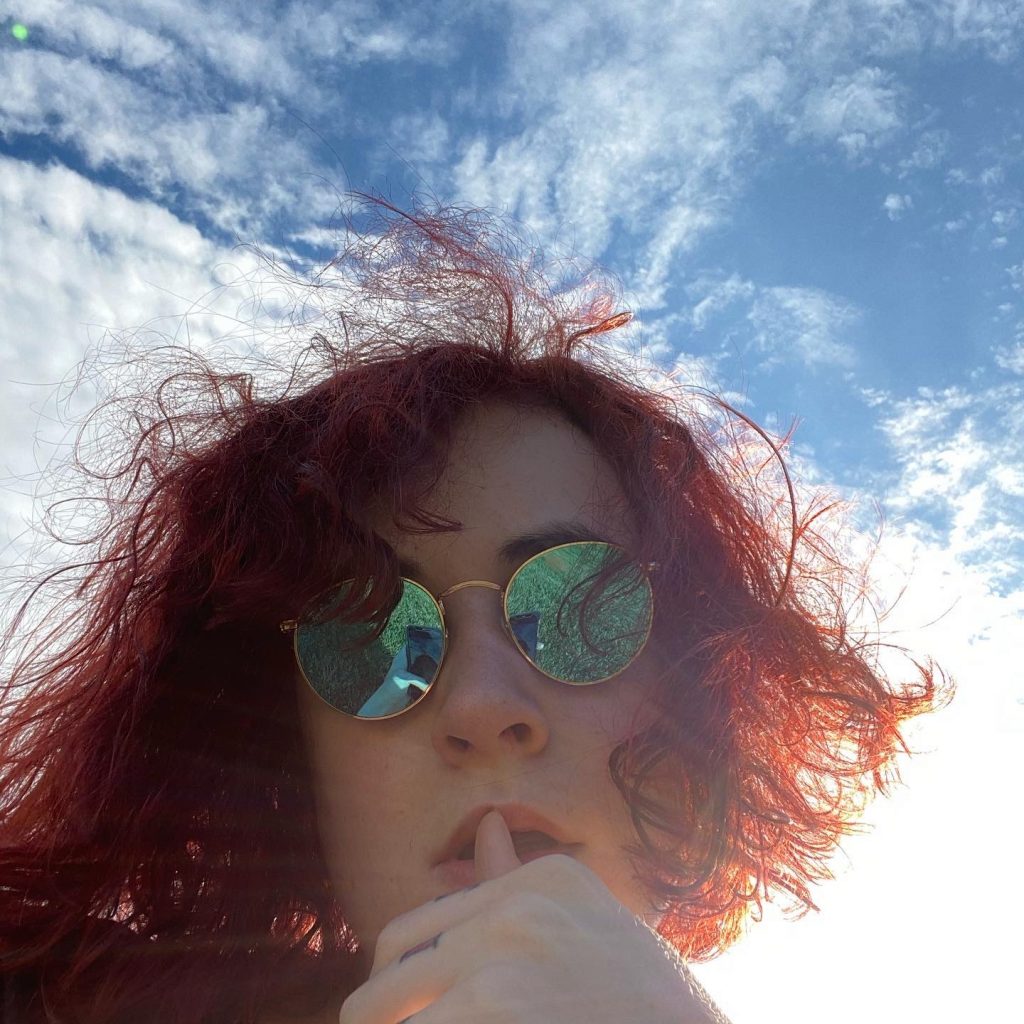
**It seems like things happen so fast online that people can have several careers, live several lives, in an extremely small span of time. Given how each of your identities and careers changed in a matter of months, is this something you can relate to?
8485: I think when you’re able to be really immersed in creating something, that thing kind of exists in a lifetime of its own, and a lot of the time you’re striving to make something about that insular timeline immortal in the final product. And with the internet, you’re able to distribute that and kind of transport a moment across allegedly linear time to a bunch of people. I think all of those weird disruptions or the desire to create them can come together for an artist and make your experience of time pretty different.
Wells: No one is allowed to know anything about my identity unless they pick it up out of the glyphs I leave in the gutters. I stay pretty still, though, so you only have to do it once.
**Identity in an online context is so fluid that it can feel unstable, or hard to establish if there are no boundaries or limitations. Is this something you think about in relation to yourselves?
8485: I think identity is probably harder to establish when there are boundaries and limitations. When you start talking to ‘industry people’—if that even makes sense as a term—sometimes there’s pressure to define yourself and say, ‘this is what I’m trying to do’, concretely. I do love narratives and overarching concepts but being able to change as I go is important to me. Even talking about being a vocaloid and a pop star, for example, those are really cool changeable things. Miku’s voice can literally be infinitely tweaked and changed, and then half the fun of long-career pop stars is watching them transform and reinvent. I love unstable identity. I hope my identity is never stable.
Wells: My career didn’t change. I’ve been doing this forever, and the same circular things still happen at the same points of the year for me. A nuke goes off every two years and every summer I eat the sun. I just make albums instead of playing shows.
**There appears a very open and supportive network that you’re a part of but there’s also a lot of expectation that comes from fans and super fans. How does this affect not only your creative output, but also your sanity?
8485: The idea that people are listening to what you do and having opinions on it is really haunting, and I don’t know if I’ll ever totally adjust. I kind of have these ghost listeners in my head who I imagine expect something very specific from me—and a lot of it. I’ve spent a lot of time trying to figure out what the something that they want actually is, and assuming that whatever I’m working on isn’t it. As for real people, I don’t think anyone’s ever really expressed any specific expectations of me, which is nice.
Wells: I feel like my fans are pretty passive. I only put out music at the rate I do because I feel like it. I definitely get asked to collaborate 100 times more often than I’m asked to drop new music, lol. It’s a little sad, I wish there were ten of me so I could work with every newbie who wanted to. Maybe I can streamline the process, some day. Information on my sanity is kept on a ‘need-to-know’, however.
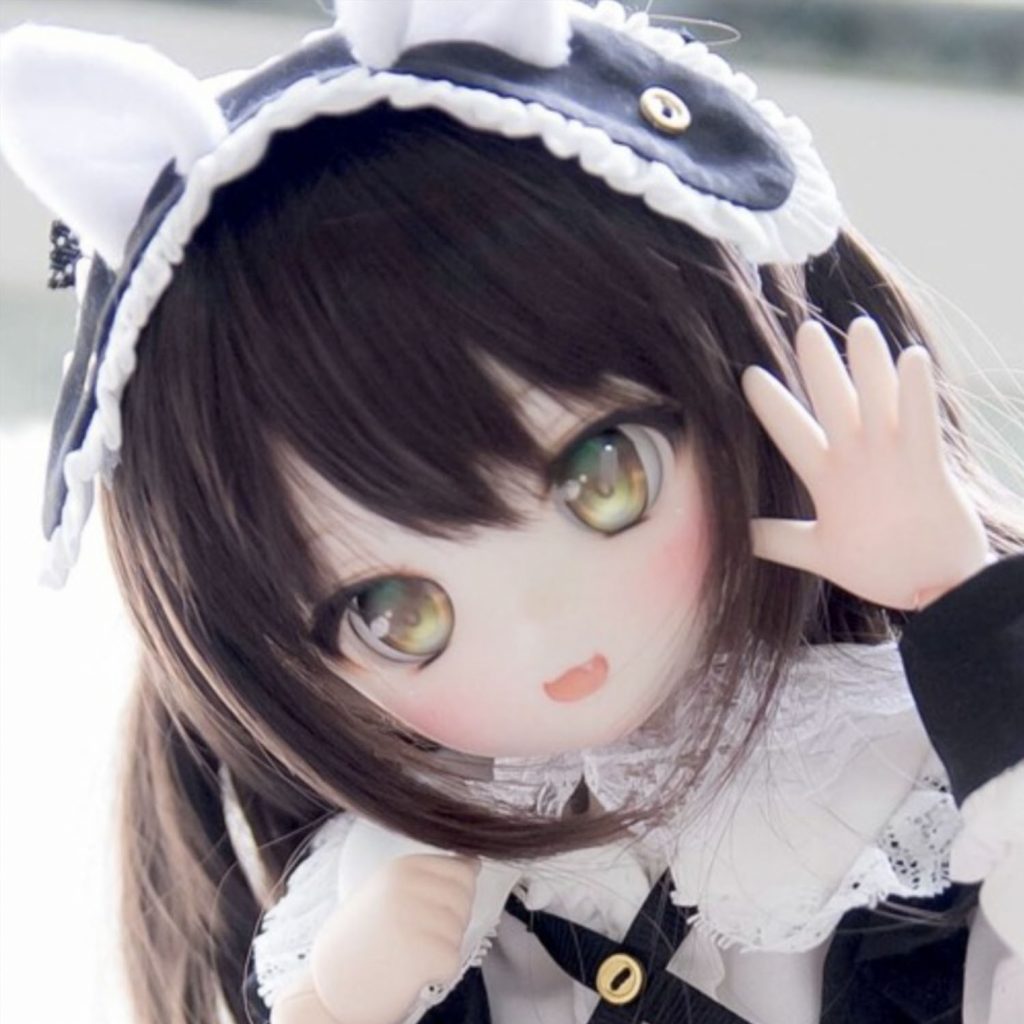
**Do you know a reality that is outside of and separate from the internet, and if so, is there pressure to be always ‘on’?
8485: Sometimes there are rare and special moments where you forget the Internet exists, but I’ve spent some of those with people I met online, so clearly you can’t fully pull it all apart. I don’t think I have known a reality completely separate from the Internet since early childhood. I do think I draw intentional lines between different parts of my Internet life. That’s more important to me than the line between online and offline. In my ideal world, I think I would have 50 different internet lives that never touched each other and maybe I’d bring the best parts into real life if they fit.
Wells: That reality is my favourite one. I’ve been missing it. The older I get, the more grotesque technology seems to me, and that’s equal parts because I can see clearer and because it gets worse with every transistor. The [Instagram] and TikTok algorithms are shifting the culture of the world in a significant and negative way. We carry around machines that hypnotize us when they’re on and sell our private conversations when they’re off. I pray to god I’ll get to spend my days in a cabin with no processors by the time I’m forty.**
